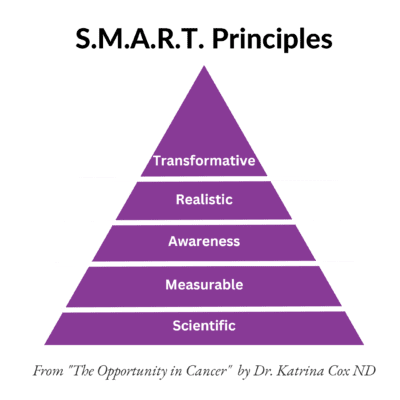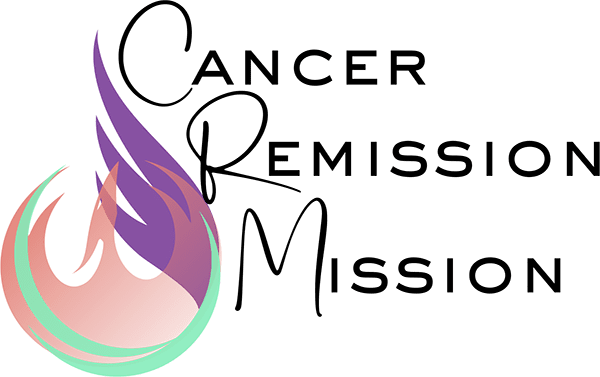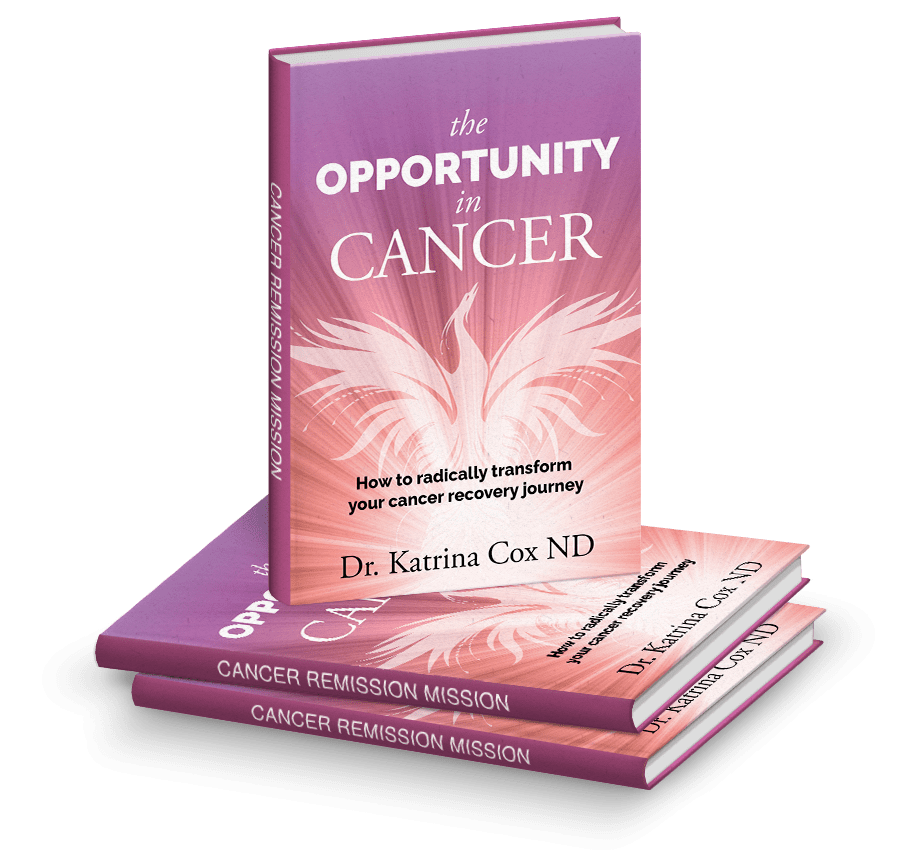Living a healthy life and pledging to make new health changes can certainly be a great way to lower your cancer risk, and enhance your recovery. However, some experts (including me) believe that a resolution may not be the best tool.
While the intention, or resolution, is certainly the first step, the reason I believe resolutions often fail (or any behaviour change we want to make at any time in our lives) is because they aren’t “S.M.A.R.T.”.
S.M.A.R.T. is an acronym that historically stands for Specific, Measurable, Achievable, Relevant, and Timely. It began in the corporate world as a means to set goals and make them trackable and achievable.
While I do subscribe to this general goal-setting tool, I find it lacks some specific impacts for cancer survivors.
With the input from many of the transformed thrivers in my practice, I’ve fine-tuned the S.M.A.R.T. principle of goal setting to be more inclusive for those in cancer remission. But, it’s also a really helpful tool when considering how to take your resolution from intention to action.
.
The S.M.A.R.T. Way to Create Resolutions
When considering any facet of the cancer recovery process, whether it be deciding on a treatment plan or simply setting this year’s resolution, these are the filtering questions I like to use and encourage in cancer thrivers:
 S – Science – If someone’s recommending something, is there some science to back it up?
S – Science – If someone’s recommending something, is there some science to back it up?
M – Measurable – Is there a measurable outcome? Is there some way for us to see if there’s an actual change to your health from using this information?
A – Aware – Are you aware of and understand how the information helps your health and how it improves your cancer recovery journey?
R – Realistic – Is it realistic for you to integrate this information into your life without compromising something else? For example, if somebody tells you that you should eat a vegan diet, and you are not in charge of your food, and you grew up on a meat farm, is that going to be realistic for you to be able to follow a vegan diet all the time?
T – Transformative – Is it truly transformative? Is the intent of the information or advice to change something for you for the better? Or in other words, do the pros outweigh the cons? This extends not only to making decisions about cancer and cancer treatment, but to the decisions you make in the cancer recovery process too.
How to stay S.M.A.R.T. and bust through roadblocks
Roadblocks are inevitable… whether it be the larger ones we face during cancer recovery or even just the challenge of staying on track with a resolution.
We all have limitations, challenges, and trauma we must overcome to transform healing.
But, I believe we can use 3 key strategies to help us overcome these roadblocks and stay on track with our journey.
I call them the 3 R’s: Reflect, Record, Reassess
So, how do we use the three Rs to overcome roadblocks and stay on track with our goals?
First, begin reflecting on where and what the roadblock is. Is it a concern of the mind, the body, or an emotion?
Then I recommend people record what they know about the roadblock and notice their reactions – both physical and emotional. This record becomes a baseline and creates awareness around the roadblock.
With this record, it becomes easier to reassess progress toward transformation beyond the roadblock, and toward true healing.
Try using both of these tools (S.M.A.R.T. principles and the 3R’s) as you start your new year and begin setting new intentions. We need to clear the rubble before we can keep walking down the road on our cancer recovery journey.




